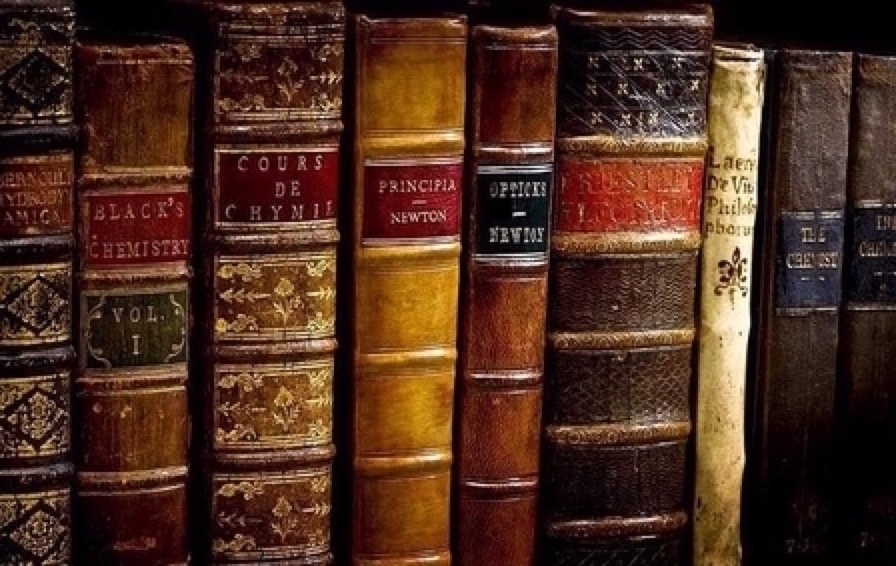
Early Math and Science
-
Early Math
Math is Everywhere – and It's Fun!
Counting odd/even, measuring and counting when cooking, +/– number quizzes in the car, simple logic puzzles and problem solving ... it's all about FUN at early ages.
Math Makes Sense with Manipulatives
Best way to learn basic math facts and acquire "number sense" is to use physical (or virtual) math manipulatives, objects designed to make key concepts viscerally real.
Children's Books for Teaching Math
Elyse Rycroft at proudtobeprimary.com has compiled a list of wonderful books to use in introducing children to mathematics.
Math Exploration Station
The best place for early learning is in the home, and the best way is when the mind is opened through play.
Mad Minute
Mathematical study requires memorization of basic facts of arithmetic (+, –, x, ÷). Five minutes a day maximizes fluency, speed. Online, printable versions here.
Math Worksheets and Drills
It's likely going to be up to parents of young children to supply the worksheet/drill component that enables critical memorization of basic math facts and processes.
Khan Academy
Best online resource for independent study & home learning. Get a jump on difficult upcoming courses by completing free Khan equivalents the previous summer.
Mathematics Methodologies
A wide range of private after-school programs have opened their doors to students looking to develop and deepen mathematical skills and conceptual understanding.
Family Math (Stenmark et al)
Classic book helps parents conduct interesting, experiential, curriculum-based math lessons and activities at home.
Daily Math Time
Along with daily reading and writing/drawing time, parents should spend some structured time each day with each child on fun math-related activities.
Early Data Visualization
With easel pad graph paper or printable stock, kids create and update graphs to track goals, weather, or other statistics and witness the power of data visualization.
Early Puzzles, Problem Solving, Math Games
Lots of fun family activities expose children to logical problem solving and exercise mathematical thinking muscles without figuring sums or solving equations.
Printable Graph Paper
Kids use specialized graph paper to color fun designs, doodles, tessellations, and other creations. Also handy for learning about proportion, perspective, graphing.
Math Fact Apps, Cards, Calculation Training Sites
Memorization of basic math facts is required for the successful study of mathematics. Modern tech and teaching methods make it easier than ever.
Early Math Toys, Aids, and Activities
The ways to enjoy and explore early math with your child are endless. This post lists resources that make teaching and learning math both fun and productive.
-
Early Programming
Scratch
An excellent way to learn and practice basic algorithmic thinking skills essential in programming. Designed at MIT especially for kids! More here.
Block Coding in Scratch
"Block Coding" is a great way to learn programming basics and have fun without writing a single line of code. Simple enough for bright 5-6 year olds (with help).
DK Scratch Coding Series
Highly-acclaimed visually-oriented series of workbooks and project-based books teaches new coders to write games and perform block coding magic using Scratch.
Help Your Kids with Computer Coding
A straightforward, visual guide to understanding the essential basics of computer coding through build-along projects and games created with Scratch and Python.
-
Early Science
Family Science
The home as lab! When children are young, it's easy to hook their natural curiosity with the wonders of scientific discovery and study.
Guidebooks: Science Experiments and Projects
Highly rated guidebooks assist parents in conducting fun experiments/projects, teaching the scientific method, and exploring science at home with their children.
Best Science Books for Kids
Science Friday's short list of books guaranteed to make kids love science. Geekwrapped's top 100 here. Amazon's best here. SmithsonianMag's ideas here.
Chemistry Set
What young scientist didn't have a chemistry set? Supervision and responsible use are crucial. Chemicals and glassware can be upgraded as skills progress.
Rockets and Other Flying Things
All kids know that planes and rockets are fun. They're also great ways for enterprising parents to inculcate in their offspring the joys of math and physics.
Make Your Own Cell Phone Microscope
For a few dollars in parts you can make a very capable digital microscope using any smartphone. See another how-to video courtesy of Make Magazine here.
Snap Circuits Electronics Discovery Kit
Award-winning upgradable electronics projects kit. Build 300+ projects, including: lie detector, laser, AM radio, light organ, touch lamp. Junior kit here.
Makey Makey Invention Kit
Everyday things become computerized inventions. Turn bananas, foil pads, written scribbles, water pans into keyboards and touchpad triggering devices. More here.
Molecular Modeling
Model chemical compounds to visualize molecules and aid in studying general or organic chemistry. Other kits here, here, and here.
Robotics
Who doesn't love robots? Thanks to simple robotics platforms like Lego Mindstorms EVX, Raspberry Pi, and Arduino, anyone can design and build robotic machines.
Weather Station
A home weather station is a great way to learn about the important of precise scientific observation, measurement, and data tracking. Steampunk version here.
The Miracle of Human Anatomy
No machine rivals the complexity and beauty of the human body. Anatomical models and specialized texts reveal the miracles lying under our own skins.
Help Your Kids with Science
Excellent introduction to the wonders of science for kids and parent-teachers alike. Graphic styles helps communicate thorny ideas. Great for self-study.
-
Miscellaneous
What Your Kindergartner Needs to Know
2nd volume in E. D. Hirsch's acclaimed Core Knowledge Series. Gives parents a sense of what their preschooler should learn. Great for home supplementation.
Science Tools and Manipulatives
Manipulatives enable hands-on learning of key concepts. Scientific instruments like microscopes and telescopes extend the senses and enable precise data collection.
Copyright © 2006-Present: Christopher R. Borland. All Rights Reserved.